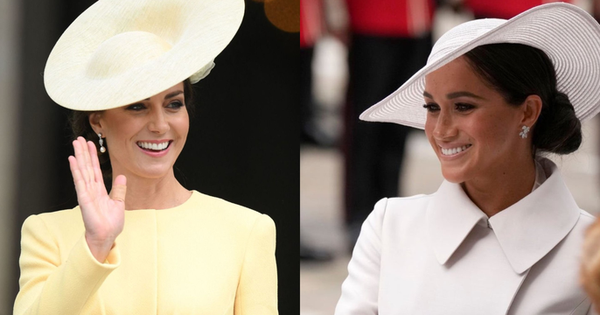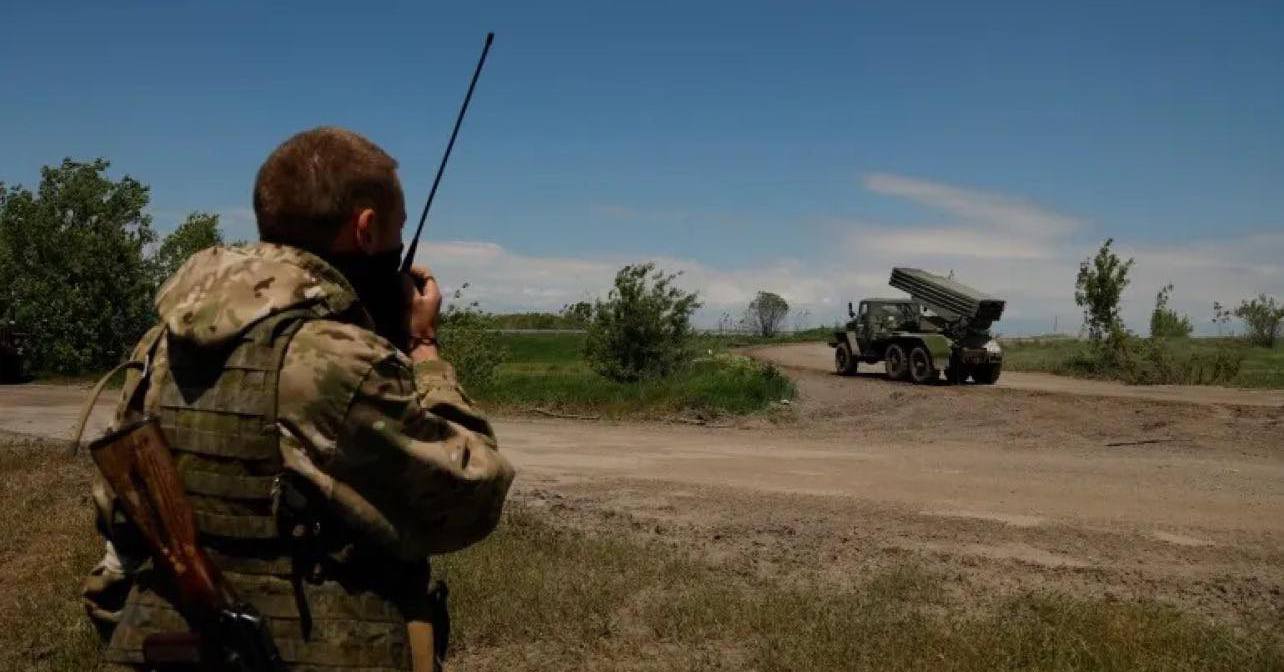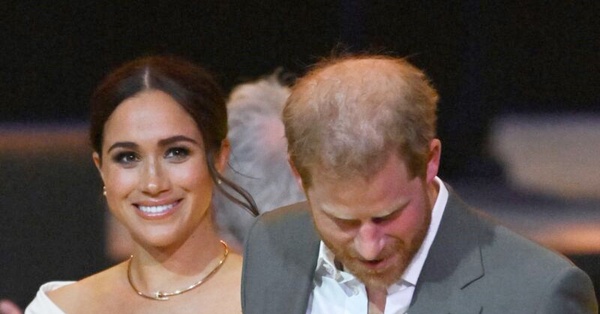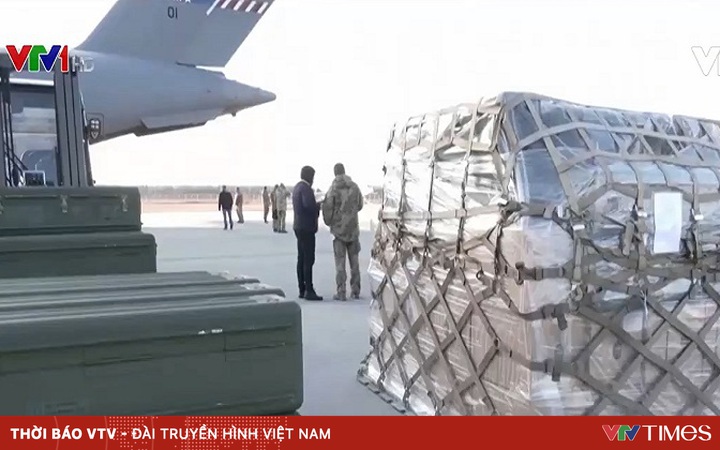Worried that South Korea will change its foreign policy under new President Yoon Suk-yeol, Beijing is trying to move closer to Seoul.
South Korean President Yoon Suk-yeol on May 10 conducted an inauguration ceremony at the National Assembly building with more than 40,000 attendees, including many international diplomats and politicians. The most notable guest face at the ceremony was Vice President of China Wang Qishan.
Wang is the highest-ranking Chinese official ever to attend a South Korean president’s inauguration, a sign that Beijing seems eager to convince Yoon not to stick to his election pledge. that it will be tougher in its relationship with China, according to Shannon Tiezzi, the magazine’s editor-in-chief Diplomat, He is also an expert on China’s foreign policy and economy.

South Korean President Yoon Suk-yeol (right) poses for a photo with Chinese Vice President Wang Qishan at the new president’s office in Yongsan, Seoul, on May 10. Image: Yonhap.
According to observers, Mr. Wang, who has a very close relationship with Chinese President Xi Jinping, was once tasked with leading the anti-corruption campaign “smashing tigers and killing flies” initiated by Mr. Xi.
The presence of the Vice President of China in Korea sends a strong signal, in the context that almost no senior Chinese officials have traveled abroad since the Covid-19 pandemic broke out in 2020. except for Foreign Minister Wang Yi. This makes Mr. Wang Qishan the highest-ranking Chinese leader to visit another country in more than two years.
When asked about Mr. Wang’s trip to South Korea, Chinese Foreign Ministry spokesman Zhao Lijian stressed that “China and South Korea are and will remain close neighbours. We are also neighbors. important cooperation partners of each other”.
“We believe that with the concerted efforts of the two sides, China-Korea relations will continue to make progress in keeping with the times,” Zhao said.
This is considered a big change in bilateral relations, especially when Mr. Yoon has expressed his stance tough on China-related issues during the election campaign. He accused his predecessor, Moon Jae-in, of weakening the alliance between South Korea and the United States by getting too close to China, vowing to change this course.
In particular, he has repeatedly expressed interest in the US plan to expand the deployment of the Terminal High Altitude Area Defense (THAAD) system in South Korea, which is a top security concern for the US. with Beijing.
When South Korea first agreed to deploy THAAD in 2016, China responded with sweeping economic sanctions, costing Seoul billions of dollars. However, that tough response also laid the groundwork for President Yoon’s aggressive approach to China.
The use of economic pressure has adversely affected China’s image in Korean public opinion. In May 2021, South Korean public opinion viewed China even more negatively than Japan and North Korea, according to a survey.
Now, with Mr. Yoon coming to power, China seems to be hoping to minimize the damage to bilateral relations, according to Ms. Tiezzi.
During his meeting with the new South Korean president, Wang conveyed Xi’s invitation to visit China to Yoon “at a time convenient for both sides.” China is dealing with the worst Covid-19 outbreak since the first outbreak in Wuhan, so Beijing is unlikely to welcome the South Korean president anytime soon.
Former President Moon Jae-in visited China twice during his term, including a state visit in 2017 and a trip in 2019 to attend the China-Japan-Korea trilateral summit. Country.
However, Mr. Xi has not made a visit to South Korea since 2014, under the administration of President Park Geun-hye.
This time, Mr. Wang presented China’s proposals to help improve bilateral relations such as more coordination to “strengthen cooperation on issues on the Korean peninsula”.
“China sincerely supports the efforts of South Korea and North Korea to improve relations and seek reconciliation and cooperation, and strengthen communication in pursuit of the goals of denuclearization, establishment of peace, and denuclearization.” lasting peace on the Korean peninsula”, South Korean news agency Yonhap news.
It is worth noting that the offer of cooperation on “Korean peninsula issues” was not proposed in the first phone call between the Chinese President and Mr. Yoon shortly after he was elected in March.
The new offer came after the Director of the National Intelligence Service of Korea Park Jie-won said that China has pressured North Korea not to conduct an intercontinental ballistic missile (ICBM) test Nuclear. According to Ms. Tiezzi, the move has sparked speculation that Beijing may be feeling frustrated with recent actions by Pyongyang, so it is more actively participating in the coordination effort with Seoul.
Mr. Vuong also raised the idea of ”increasing substantive cooperation in the industrial supply chain”. The same theme has been central to South Korea-US cooperation under President Moon and will probably be followed under President Yoon.
Tiezzi said Beijing is probably worried about the possibility that Seoul will separate its supply chain from China and is trying to prevent that scenario.
Another big concern for Beijing is the possibility that President Yoon is willing to improve relations with Japan, this commentator assessed. Close security cooperation with Japan has long been a controversial topic in South Korea, rooted in historical entanglements.
Seoul-Tokyo relations have soured over the past few years following a series of South Korean court rulings in 2018 that Japanese corporations needed to compensate the country’s forced laborers during World War II. However, Japan insists that this issue has been resolved since the two countries normalized relations in 1965.
But for now, China worries that Yoon’s move toward Japan will open up the possibility of forming a Japan-South Korea-US alliance triangle in the region, something Beijing has long feared.
Japanese Foreign Minister Hayashi Yoshimasa also attended Mr. Yoon’s inauguration ceremony. Following a meeting between Foreign Minister Hayashi and future South Korean Foreign Minister Park Jin, Japan’s foreign ministry said the two sides had agreed that “they have no time to waste in efforts to improve bilateral relations.” . Mr. Hayashi also sent a private letter from Japanese Prime Minister Kishida Fumio to Mr. Yoon.
However, despite the strong statements that have been made, President Yoon is expected to face many challenges in his efforts to make sweeping changes to South Korea’s foreign policy, analysts said.
Attempts to reconcile with Japan will hardly be accepted by the Korean people if Tokyo does not make a satisfactory offer on the issue of compensation for World War II forced labor.
“Similarly, it is easy to declare ‘to be tough on China’, but implementing such policies will be very difficult, because the Korean economy is still dependent on the Chinese market,” Tiezzi said.
China won’t have to wait long to see how far President Yoon is willing to go in his bold statements. US President Joe Biden will travel to Seoul for a summit with President Yoon on May 20 and 21, an event that is said to be a premise for Korea-US relations as well as trilateral cooperation with Japan under the government. right Mr. Yoon.
Vu Hoang (According to Diplomat)
at Blogtuan.info – Source: vnexpress.net – Read the original article here



